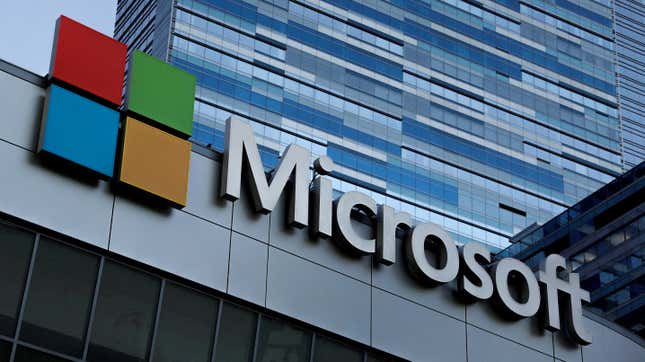
After unveiling the new Bing—a search engine beefed up with generative AI—in February and making a slew of announcements about integrating OpenAI’s tech into its various Office products, Microsoft now plans to start charging businesses who want to use its AI tools.
Subscriptions for Bing Chat Enterprise will be priced at $5 per user per month, although the service will be free for organizations that already pay for Microsoft 365 enterprise plans. Bing Chat Enterprise is now available to 160 million people under the 365 enterprise plans, Microsoft told Quartz in an email.
A number of big companies such as Apple, Spotify, and Verizon have banned or restricted employees from using ChatGPT and other generative AI tools due to such security concerns. In response, Bing Chat Enterprise will come with “commercial data protection,” a Microsoft press release said. Since the press release outlined no other differences between regular Bing Chat and Bing Chat Enterprise, Microsoft seems to have decided that only paying users can be completely assured of data security.
“It looks like you’re writing a letter”
Microsoft also released a pricing plan for Copilot, an AI bot to help users work across the Office software suite. Access to Copilot will cost $30 per month for customers of Microsoft Office enterprise plans. (Microsoft did not specify whether people with non-enterprise licenses will have access to Copilot.)
Copilot, first announced in March, can help analyze data in Excel, design presentations in PowerPoint, and summarize meetings in Teams, among other things. Microsoft claims that Copilot can ground its analysis in business data—a blend of documents, emails, calendars, chats, meetings, and contacts—making its responses more relevant and actionable.
Don’t expect AI bots to be free forever
Pricing plans for AI bots were always on the horizon; free lunches, after all, famously don’t exist. Now Microsoft and other companies offering generative AI services need to convince customers to pay for these features. In addition to the free version of ChatGPT, OpenAI offers a $20 subscription to ChatGPT Plus, which runs on the latest version of the startup’s large language model. Google, which rolled out its own Bard chatbot after the launch of ChatGPT, does not have a pricing model as yet.
The subscription fees offer companies a way to recoup their investment over the years into developing AI technologies. Microsoft, in particular, has invested at least $10 billion into OpenAI and is competing with Google, Amazon, and Meta to dominate the generative AI space. It’s not clear how much it costs Microsoft to run such tools, which require servers with specialized chips. What’s clear, though, is that better versions of AI chatbots are starting to appear—and companies now expect users to pay up.